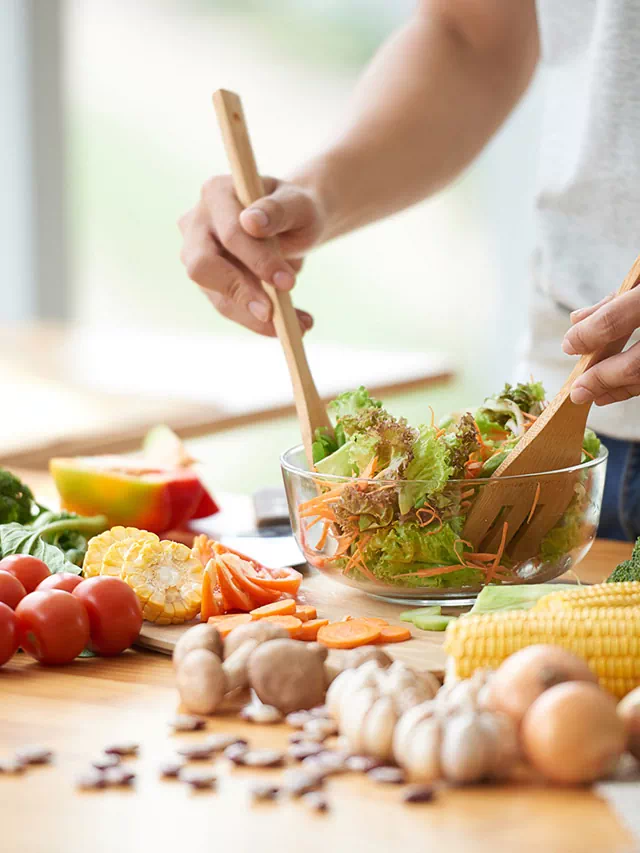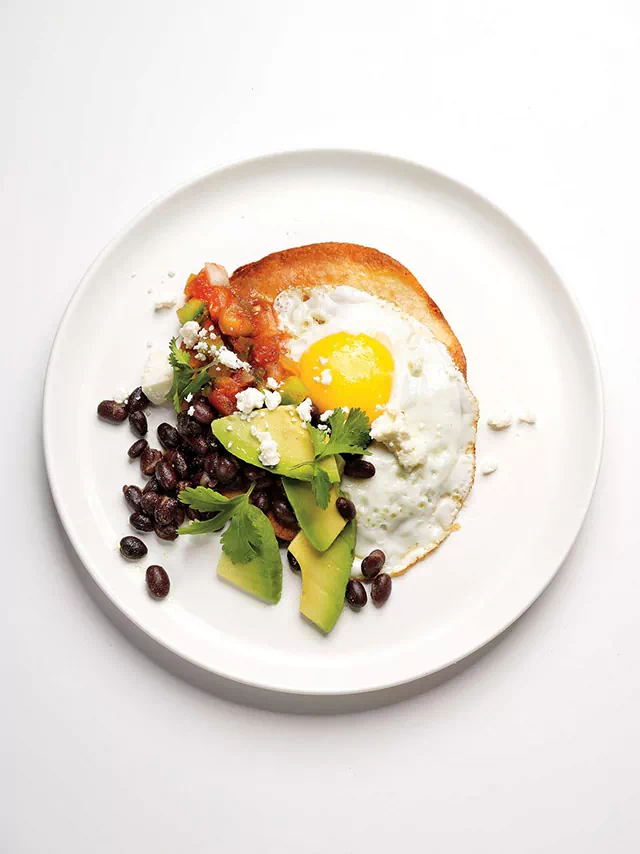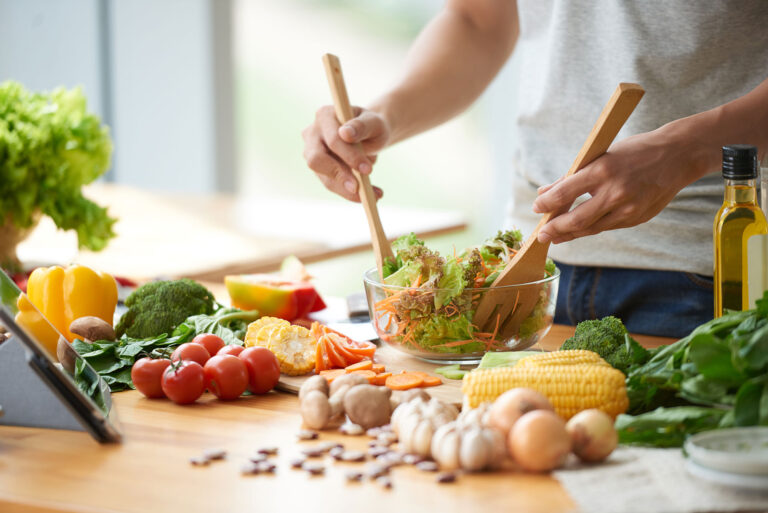Home cooking refers to preparing meals and snacks from scratch using fresh ingredients at home, rather than relying on pre-packaged or fast food options.
Health Benefits
Home cooking is generally considered to be healthier than eating out or relying on pre-packaged foods because you have more control over the ingredients and portion sizes. This can help you to avoid excess sugar, sodium, and unhealthy fats. Healthy cooking can provide many health benefits, including:
- Better Nutrition: When you cook at home with fresh, whole ingredients, you have more control over the quality and quantity of the nutrients in your meals. You can choose healthier cooking methods, such as steaming or grilling, which preserve the nutrients in your food.
- Lower Risk of Chronic Diseases: Eating a healthy diet that includes plenty of fruits, vegetables, whole grains, and lean protein can lower your risk of chronic diseases like heart disease, diabetes, and cancer.
- Weight Management: When you cook at home, you can control portion sizes and the amount of fat, sugar, and salt in your meals. This can help you maintain a healthy weight or lose weight if you need to.
- Better Digestion: Cooking your meals from scratch with whole ingredients can improve your digestion and help your body absorb nutrients more efficiently.
- Improved Mental Health: Cooking at home can be a relaxing and satisfying activity that can help reduce stress and improve your mood. Plus, when you cook for yourself, you know exactly what is in your food and can avoid unhealthy additives and preservatives that can negatively impact mental health.
Healthy cooking can provide many health benefits, including better nutrition, lower risk of chronic diseases, weight management, better digestion, and improved mental health.
Cost-Effective
While cooking at home can be more time-consuming, it is generally more cost-effective than eating out at restaurants or buying pre-packaged meals. You can also save money by buying ingredients in bulk, using leftovers creatively, and meal planning. Cooking at home can be a cost-effective way to feed yourself and your family. Here are some ways that healthy cooking can help you save money:
- Buying in Bulk: You can save money by buying ingredients in bulk, especially pantry staples like grains, beans, and nuts. This can reduce the cost per serving and ensure that you always have healthy ingredients on hand.
- Meal Planning: Planning your meals in advance can help you avoid impulse purchases and reduce food waste. By planning your meals, you can also make use of ingredients you already have on hand and avoid buying unnecessary items.
- Using Leftovers: Don’t let leftover food go to waste! You can use leftover ingredients to create new meals or freeze them for later use. This can help you stretch your food budget further and reduce the amount of food that goes to waste.
- Avoiding Convenience Foods: Pre-packaged foods and fast food can be expensive and often less healthy than homemade meals. By cooking at home, you can avoid the added cost of convenience foods and create healthier meals for less money.
- Cooking with Seasonal Ingredients: Choosing seasonal produce can help you save money on ingredients and ensure that you are getting the freshest and most flavorful produce available.
Cooking at home can be a cost-effective way to eat healthy, delicious meals. By planning ahead, buying in bulk, using leftovers, avoiding convenience foods, and choosing seasonal ingredients, you can save money on your food budget and still enjoy delicious and nutritious meals.
Cooking Skills
Cooking at home requires some basic cooking skills, such as chopping vegetables, measuring ingredients, and using kitchen appliances safely. However, these skills can be learned and improved over time with practice and experimentation. Cooking skills are essential for preparing healthy meals at home. Here are some basic cooking skills that can help you become a better home cook:
- Knife Skills: Proper knife skills are essential for efficient and safe food preparation. Learn how to hold and use a knife correctly, how to chop and dice ingredients, and how to sharpen and maintain your knives.
- Measuring and Mixing: Learning how to accurately measure ingredients and mix them together is essential for baking and cooking. Make sure you understand basic measurement conversions and how to use measuring spoons and cups.
- Heat Control: Understanding how to control heat is essential for cooking a wide variety of dishes. You need to know how to set the correct temperature, use different cooking methods like sautéing, roasting, and grilling, and how to avoid overcooking or burning your food.
- Seasoning: Proper seasoning is essential for making your dishes taste great. Learn how to use herbs, spices, and other seasonings to enhance the flavor of your food.
- Food Safety: Food safety is essential for preventing foodborne illnesses. Make sure you know how to properly store, prepare, and cook food to avoid contamination.
Overall, cooking skills take practice and patience to develop. Start with simple recipes and techniques and work your way up to more complex dishes as you gain experience and confidence in the kitchen. Don’t be afraid to experiment with new ingredients and techniques to develop your own cooking style.
Time Management
Home cooking requires time management skills, as you need to plan your meals, shop for ingredients, and allocate time for cooking. However, this can also be a fun and rewarding activity that allows you to experiment with different recipes and flavors.
Time management is essential for efficient and effective home cooking. Here are some tips for managing your time in the kitchen:
- Plan Ahead: Meal planning is essential for efficient home cooking. Plan your meals for the week ahead and make a shopping list to ensure you have all the ingredients you need. This can save you time and reduce stress during meal preparation.
- Prep Ahead: Prepping ingredients ahead of time can save you time when it comes to cooking. Chop vegetables, marinate meat, or pre-cook grains or beans in advance so that you can quickly assemble your meals when you’re ready to cook.
- Use Time-Saving Appliances: Appliances like a slow cooker or pressure cooker can save you time and effort in the kitchen. These appliances can cook your meals while you’re doing other things, so you can come back to a delicious, ready-to-eat meal.
- Clean as You Go: Keeping a clean and organized kitchen can save you time and make meal preparation more efficient. Clean as you go by washing dishes and wiping down counters as you finish using them.
- Multi-Task: When possible, try to multitask by cooking multiple dishes at once. For example, you can roast vegetables in the oven while you’re cooking pasta on the stove.
Time management is essential for efficient and effective home cooking. By planning ahead, prepping ingredients, using time-saving appliances, cleaning as you go, and multi-tasking, you can save time in the kitchen and enjoy delicious meals without the stress of last-minute meal preparation.
Culinary Creativity
Cooking at home allows you to be creative with your meals and try new things. You can experiment with different spices, herbs, and cooking techniques to create unique and flavorful dishes. Culinary creativity is the ability to think outside the box and come up with new and innovative ideas for cooking and creating dishes. Here are some tips for developing culinary creativity in the kitchen:
- Experiment with New Ingredients: Trying new ingredients can open up a world of possibilities for new dishes and flavor combinations. Visit local farmers’ markets or ethnic grocery stores to find new and interesting ingredients to incorporate into your cooking.
- Play with Flavors: Don’t be afraid to experiment with flavors by mixing and matching different spices, herbs, and seasonings. Try adding a touch of sweetness to savory dishes or adding a spicy kick to a sweet dessert.
- Re-imagine Classic Dishes: Put your own spin on classic dishes by adding new ingredients or changing up the cooking method. For example, try adding different types of cheese to a classic grilled cheese sandwich or adding bacon to a traditional mac and cheese recipe.
- Incorporate Different Cooking Techniques: Experiment with different cooking techniques like grilling, smoking, or sous-vide cooking to create new and exciting flavors and textures in your dishes.
- Get Inspired: Look to other cultures and cuisines for inspiration. Try recreating your favorite dishes from different regions of the world or put your own twist on traditional recipes.
Culinary creativity is all about experimenting, trying new things, and having fun in the kitchen. By incorporating new ingredients, flavors, and cooking techniques into your dishes, you can develop your own unique cooking style and create delicious and innovative meals that will impress your family and friends. Some cooking can be a healthy, cost-effective, and fun way to feed yourself and your family. While it does require some time and effort, the benefits of home cooking make it a worthwhile endeavor.






